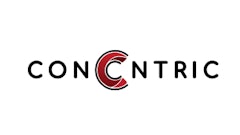What’s going on in D.C. these days? Plenty, and most of the activities will impact your business, as well as you personally. Some of the most obvious are:
- interest rate manipulation;
- income tax changes;
- ObamaCare (Patient Protection and Affordable Care Act);
- new rules and regulations;
- and ultimately more intrusion in your life.
As you may surmise, I am not a big fan of government, nor the bureaucrats that run the various agencies. My general consensus is government can’t do much right because there is a lack of flexibility along with a high cost of managing programs. I can’t think of one government program that couldn’t get better results from outsourcing to a profit-oriented provider except for national defense and infrastructure projects.
Time to move on to the list noted above.
Rising Interest Rates
Until now, the Fed has been keeping interest rates low. It is now talking about gradually reducing quantitative easing (QE) (a government monetary policy used to increase the money supply), so you can expect interest rates to start increasing to a “normal” (more expensive) level. In addition, the Detroit situation, along with other muni bond defaults, will cause interest rates to increase.
Higher interest rates and increased spending for housing typically don’t go hand in hand. So, just as the housing sector seems to be coming around, interest rates hikes will once again cause it to slow down.
The logical step to take would be to anticipate financing needs and find ways to lock in the current low rates, whether you are financing inventory, transportation equipment or construction equipment. On the other hand, if your market is still somewhat soft, you may want to hold back on purchases and rent equipment to keep some flexibility with your cash flow.
Let’s not forget that higher financing costs have to be recovered. Costs increase and so should your billing.
The only good thing about higher interest rates is the higher rate of return on your investments. This increase in investment returns is needed to offset the devaluing of the dollar caused by QE. Up to this time, we were dealing with a one-sided situation.
Income Taxes Changes
President Obama is proposing to cut corporate tax rates from 35% to 28%, which is a significant reduction. At the same time, Congress is working to eliminate as many deductions as possible to make up for the reduction in rates. The rates will decrease, but you can bet your last dollar that taxable income will be higher across the board.
The only problem with the cut in tax rates for corporations is that only about 6% of business tax returns are C-Corps, and these C-Corps are the biggest companies in the land. Hmm, where does this leave you?
Since most private companies are S-Corps, sole proprietors or LLCs, any taxable income flows through to your personal return, which is still subject to the higher rates. On top of the rate issue will fall any reduction in deductions brought on by tax reform.
In addition to corporate rates, I heard from a Congressman I know that they are also looking to reduce the rate for owners of flow-through entities. This same Congressman also stated that “everything is on the table,” including accelerated depreciation, LKE transactions, bonus depreciation and so on. So even though you get lower rates, it will come with less deductions. It will pay to keep track of these changes and do some tax planning to estimate your tax liability. Also remember that when your tax bill increases, your estimated tax payments for the following year increase, as well.
So far we have you meeting with your banker and CPA. Now let’s move on to the next topic and see where that leads us.
ObamaCare
Just when you thought you were in the clear, we have to discuss health insurance. We have covered this topic recently and I believe my friends from Alper Services prepared an article on the topic. But that was then and this is now, and it seems that implementation is being pushed out on some aspects with others remaining intact.
I guess if you have a union shop, you may have this issue somewhat covered except for your non-union personnel. Non-union shops and non-union employees at union shops have options and will be best served by encouraging a consumer-oriented approach with incentives for doing so. Some studies indicate that a pretty good percentage of employers will take a hard look at the exchanges.
No matter how you look at it, health care remains a major headache that requires professional help to help you deal with it.
While we are on the subject, it may pay to investigate how the unions plan to fund health care. Or for that matter how well is the pension funded? Detroit had some of its pension funded but not a nickel put away for promised health care coverage. Since this whole recent union funding situation unfolded, I think it is a reasonable request to see how your benefits are managed.
Summary
The three topics we covered here can be ignored at your own peril. There is not one business owner I know who wants to pay more interest or taxes than they have to and more health insurance payments than they need to.
You all have a good idea how to make money in your business because you understand how it works. But when it comes to banking, taxes and health insurance, you are out of your environment. So get some help and do it right.
I will keep you informed about the tax changes coming your way.
Garry Bartecki is the managing member of GB Financial Services LLP and VP Finance for the Associated Equipment Distributors. He can be reached at (708) 347-9109 or [email protected].



















